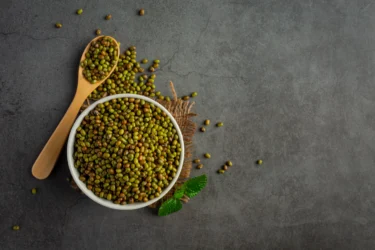Best Home Remedies for Appendicitis Recovery
By Dr. Shekhar Takale +2 more

Get,

to manage your symptom
Get your,


4 Cr+ families
benefitted

OTP sent to 9988776655



You’ve successfully subscribed to receive
doctor-approved tips on
Whatsapp

Get ready to feel your best.

Hi There,
Download the PharmEasy App now!!


Register to Avail the Offer
Send OTPBy continuing, you agree with our Privacy Policy and Terms and Conditions

Hi There,
Sign up on PharmEasy now!!
Trusted by 4 crore+ families

OTP sent to 9988776655



You have unlocked 25% off on medicines




Code: NU25
By Dr. Shekhar Takale +2 more
Table of Contents
Appendicitis is a condition where the appendix becomes swollen and infected. It affects about 5% of the population across the globe. Appendicitis can be caused by a blockage within the appendix, which causes blood flow issues, inflammation, infection and pressure. The appendix can rupture if not treated in time1. The pain caused by appendicitis should not be ignored, as a delay in seeking medical help can lead to the bursting of the appendix, which is a life-threatening complication of appendicitis. Home remedies are of no help in treating this condition. However, you may follow some home remedies for a smooth recovery after an Appendicectomy ( a surgical procedure to remove the appendix).
The appendix is a small finger-shaped organ connected to the large intestine on the right side of the abdomen. Its exact function is unknown, and it is possible to live without one. Appendicitis is a condition that causes the appendix to swell, become inflamed and fill with pus. This can result in a lot of discomfort. Appendicitis can occur at any age, but it is most common in people in their teens and twenties. An inflamed appendix can cause slow and dull pain in the abdomen. If left untreated, a ruptured appendix can spread bacteria throughout the abdominal cavity. These bacteria cause peritonitis, a potentially fatal infection that can result in death.

The most common symptom of appendicitis is abdominal pain that begins near the belly button, progressing lower and to the right. Other symptoms may include2:
Appendicitis in children may generally not show typical symptoms. A person may also have a frequent and urgent need to urinate, though this is extremely uncommon. Anyone experiencing progressively worsening abdominal pain should seek medical attention. Symptoms of other conditions, such as a urinary tract infection, may be similar. Nonetheless, all of these conditions necessitate immediate medical attention to avoid any fatal complications.
The exact cause of appendicitis is unknown in many cases. It is believed to develop when a section of the appendix becomes obstructed or blocked. Many things can obstruct your appendix, including:
Anyone can get appendicitis. However, some people may be more prone to developing this condition than others. Appendicitis risk factors include:
Appendicitis can lead to serious complications if your appendix ruptures, allowing faeces and bacteria to enter your abdominal cavity. A ruptured appendix can cause a variety of painful and potentially fatal infections, including:
To manage and prevent complications, it is best to speak to a healthcare specialist.
Appendicitis starts with a dull pain in the abdominal cavity and then wreaks havoc on the whole body as days pass. Consult a doctor and follow the treatment advised. You will most likely have to undergo immediate surgery. Appendix surgeries are safe, and your doctor will recommend medicines, rest and a proper diet that will help you recover fast after the surgery. Adhere to your doctor’s instructions and you can also discuss with them about following a list of home remedies that have been shown to be effective for patients recovering from appendix surgery.

It may take some time to return to your pre-appendicectomy diet. Eating smaller portions more frequently, such as 6 to 8 small meals throughout the day, can aid in the gradual return to the regular diet. It is critical to drink plenty of water and caffeine-free fluids after an appendectomy to avoid constipation and bowel problems. Include foods that contain bromelain, an enzyme that aids in pain relief and wound healing3. Zinc deficiency in the diet can interfere with the body’s natural healing mechanism. Choose food that is healthy and easy to digest.

Clinical studies4 have shown that vitamin C plays an important role in all aspects of wound healing, from neutrophil clearance to scab formation. To ensure a speedy recovery from internal wounds, a vitamin C-rich diet is essential. The highest sources of ascorbic acid or vitamin C are amlas, strawberries, limes, kiwi fruits, red capsicum, guavas, oranges, grapefruit and cauliflower.

Mung beans or green grams contain antibacterial agents, which make them an ideal post-surgery recovery food. They are regarded as stomach-cooling food. Doctors and practitioners recommend eating one tablespoon of rinsed and soaked green gram every day, either raw, steamed or lightly microwaved. For best results, consume it three times per day.

Rest is essential after appendix surgery, but so is light activity. When you’re ready, gradually increase your activity level. Short walks, even around the house, are a great place to start and can help prevent pneumonia and blood clots. An added benefit is that being active encourages your digestive system to return to normalcy sooner. Constipation can be excruciating, so include some doctor-approved exercise in your daily routine, drink plenty of fluids and take stool softeners if your doctor recommends them.
Although appendicitis is usually confused with regular abdominal pain, consulting a physician for physical examination, undergoing imaging tests like ultrasound and CT scan in case of severe and persistent sudden abdominal pain is crucial.
Dr. Ashish Bajaj, M.B.B.S. M.D. in Clinical Pharmacology and Toxicology.

If you recently had an appendectomy, you will most likely be in bed for an extended period of time. Before attempting any exercises while in bed, consult your doctor. If your doctor approves, begin with simple leg pumps and lifts to improve blood flow and circulation in the lower parts of your body. Furthermore, performing bed exercises can help reduce the likelihood of blood clots forming in your lower extremities. Perform these exercises every hour while lying in bed.

After a few weeks of rest, begin gentle walking and avoid strengthening exercises. Begin by sitting on the edge of a bed with your feet hanging off the edge. Lift your legs up until they are parallel to the floor, keeping your back straight and core tight. Hold for a few seconds before slowly lowering your legs back to their original position. Repeat until you’re exhausted.
Also Read: Natural Home Remedies For Vomiting

A person may experience severe pain following surgery. Massage alleviates acute pain by promoting recovery and relieving tension. It causes friction between the skin and the fingers, which increases blood flow to the area. A post-appendectomy massage at home can be very relaxing and help to relieve tension. Make sure you consult your doctor about the recovery and get a massage once allowed.

When a person undergoes surgery, the body’s natural response is to halt normal activity so that it can focus on uninterrupted healing. That means you’ll be sleeping a lot more than usual for at least the first week or so after surgery. This period of reduced physical activity is critical, especially after abdominal surgery, either open or laparoscopic. This is because your surgeon had to cut through the visible external muscles and the innermost layer of the abdominal wall, which holds your internal organs in place. If you resume your normal activities before the inner layer has healed, you may develop a hernia, in which part of your intestine squeezes out of the abdominal cavity.
Appendicitis is a serious condition and a surgery might be needed as soon as possible. The post-surgery recovery stage is equally important as the body needs to heal itself. During this period, make sure that you get plenty of rest, eat well and slowly incorporate your daily activities back into your life.
Also Read: 10 Effective Home Remedies for Irregular Periods
If the abdominal pain is due to appendicitis, you should never rely on home remedies, as there are high chances that it might burst and can cause complications. Seek immediate care from a general surgeon to prevent complications.
Dr. Nikhil Yadav, MBBS MD,CCEBDM
Also Read: Natural Home Remedies For Stomach Ulcers
Appendicitis can be caused by infections in your digestive tract, such as viruses, bacteria or parasites. It could also happen if the tube connecting your large intestine and appendix becomes blocked or trapped by stool or worms. Tumours can occasionally cause appendicitis. The appendix becomes painful and swollen as a result.
Appendicitis usually begins with a pain in the middle of your stomach (abdomen) that comes and goes. Within hours, the pain spreads to the lower right side of the abdomen, where the appendix is usually found and becomes constant and severe. Pressing on this area, coughing or walking may aggravate the pain.
Some of the fruit seeds consumed are naturally excreted from the body, while others can cause appendicitis. Appendicitis has been linked to the seeds of vegetables and fruits such as cacao, orange, melon, barley, oat, fig, grape, date, cumin and nut.
Surgery to remove the appendix is the standard treatment for appendicitis. This procedure is known as an Appendicectomy. Antibiotics are sometimes used while the diagnosis is being made, but most doctors agree that antibiotics cannot cure appendicitis.
Disclaimer: The information provided here is for educational/awareness purposes only and is not intended to be a substitute for medical treatment by a healthcare professional and should not be relied upon to diagnose or treat any medical condition. The reader should consult a registered medical practitioner to determine the appropriateness of the information and before consuming any medication. PharmEasy does not provide any guarantee or warranty (express or implied) regarding the accuracy, adequacy, completeness, legality, reliability or usefulness of the information; and disclaims any liability arising thereof.
Comments

Leave your comment...
You may also like
Comments